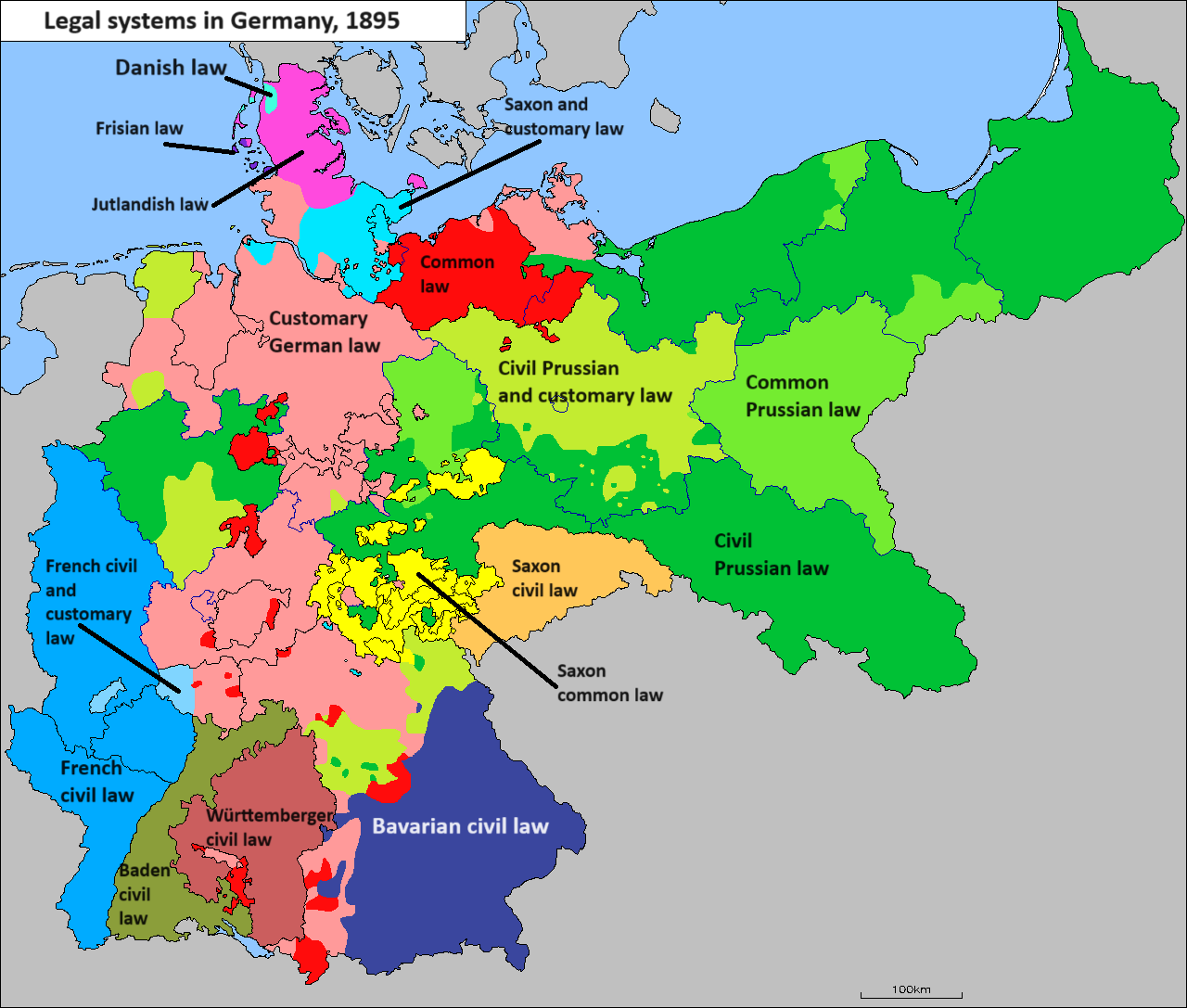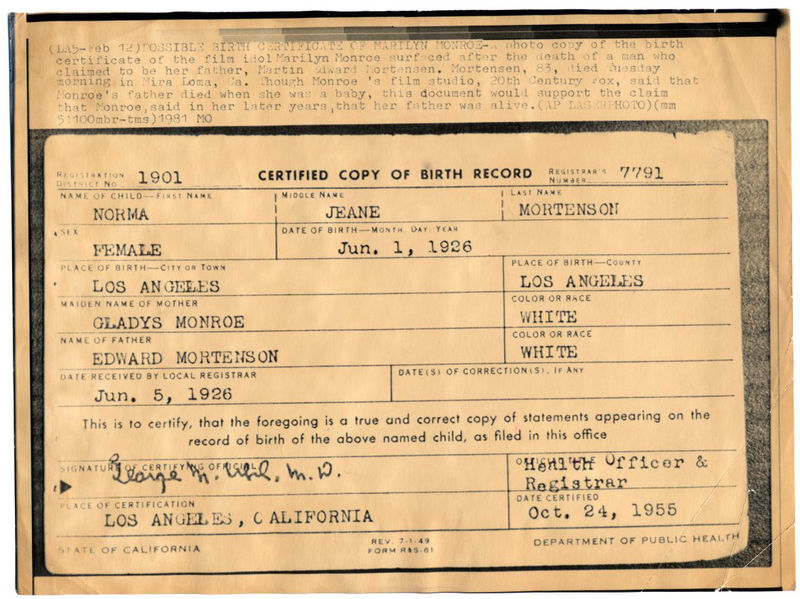|
Genealogical Certificate
The genealogical certificate (''Abstammungsurkunde'') was a civil status certificate under German law to prove the birth of a child and it differs slightly from a birth certificate. The main purpose of the document was to determine marriage bans with adopted children. Since this had little practical significance, the genealogical certificate was abolished on January 1, 2009, by the Civil Status Law Reform Act. Genealogical certificates were issued until December 31, 2008, by the civil registry office that had certified the birth. It contained, among other things, the child's name, sex, date of birth, place of birth, and parents' names. There are also any changes listed in a genealogical certificate that have occurred since the birth of the child, such as adoption or name changes. Genealogical certificates were documents that reflected the actual descent of a person. For marriages a genealogical certificate was required since only it showed who the biological parents were. Since 20 ... [...More Info...] [...Related Items...] OR: [Wikipedia] [Google] [Baidu] |
Vital Record
Vital records are records of life events kept under governmental authority, including birth certificates, marriage licenses (or marriage certificates), separation agreements, divorce certificates or divorce party and death certificates. In some jurisdictions, vital records may also include records of civil unions or domestic partnerships. Note that only the life events meaning is restricted to government; the records management meaning in this article applies to both government and non-government organizations. United States In the United States, vital records are typically maintained at both the county and state levels. In the United Kingdom and numerous other countries vital records are recorded in the civil registry. In the United States, vital records are public and in most cases can be viewed by anyone in person at the governmental authority. Copies can also be requested for a fee. There are two types of copies: certified and uncertified. Certified copies are officia ... [...More Info...] [...Related Items...] OR: [Wikipedia] [Google] [Baidu] |
Law Of Germany
The law of Germany (), that being the modern German legal system (), is a system of civil law (legal system), civil law which is founded on the principles laid out by the Basic Law for the Federal Republic of Germany, though many of the most important laws, for example most regulations of the civil code (''Bürgerliches Gesetzbuch'', or BGB) were developed prior to the 1949 constitution. It is composed of public law (''öffentliches Recht''), which regulates the relations between a citizen/person and the state (including criminal law) or two bodies of the state, and the private law, (''Privatrecht'') which regulates the relations between two people or companies. It has been subject to a wide array of influences from Roman law, such as the Justinian Code the Corpus Juris Civilis, and to a lesser extent the Napoleonic Code. History German law has been subject to many influences over the centuries. Until Medieval times the Early Germanic Law, derived from the Salic Law of the ... [...More Info...] [...Related Items...] OR: [Wikipedia] [Google] [Baidu] |
Birth Certificate
A birth certificate is a vital record that documents the Childbirth, birth of a person. The term "birth certificate" can refer to either the original document certifying the circumstances of the birth or to a certified copy of or representation of the ensuing registration of that birth. Depending on the jurisdiction, a record of birth might or might not contain verification of the event by a healthcare professional such as a midwife or doctor. The United Nations Sustainable Development Goal 17, an integral part of the Sustainable Development Goals, 2030 Agenda, has a target to increase the timely availability of data regarding age, gender, race, ethnicity, and other relevant characteristics which documents like a birth certificate have the capacity to provide. History and contemporary times The documentation of births is a practice widely held throughout human civilization. The original purpose of vital statistics was for tax purposes and for the determination of available mil ... [...More Info...] [...Related Items...] OR: [Wikipedia] [Google] [Baidu] |
Adoption
Adoption is a process whereby a person assumes the parenting of another, usually a child, from that person's biological or legal parent or parents. Legal adoptions permanently transfer all rights and responsibilities, along with filiation, from the biological parents to the adoptive parents. Unlike guardianship or other systems designed for the care of the young, adoption is intended to effect a permanent change in status and as such requires societal recognition, either through legal or religious sanction. Historically, some societies have enacted specific laws governing adoption, while others used less formal means (notably contracts that specified inheritance rights and parental responsibilities without an accompanying transfer of filiation). Modern systems of adoption, arising in the 20th century, tend to be governed by comprehensive statutes and regulations. History Antiquity Adoption for the well-born While the modern form of adoption emerged in the United States, ... [...More Info...] [...Related Items...] OR: [Wikipedia] [Google] [Baidu] |
Civil Registration
Civil registration is the system by which a government records the vital events (Birth certificate, births, Marriage certificate, marriages, and Death certificate, deaths) of its citizens and Residency (domicile), residents. The resulting repository or database has different names in different countries and even in different subnational jurisdictions. It can be called a civil registry, civil register (but this is also an official term for an individual file of a vital event), vital records, and other terms, and the office responsible for receiving the registrations can be called a bureau of vital statistics, registry of vital records and statistics, registrar, registry, register, registry office (officially register office), or population registry. The primary purpose of civil registration is to create a legal document (usually called a wikt:certificate, ''certificate'') that can be used to establish and protect the civil rights, rights of individuals. A secondary purpose is to c ... [...More Info...] [...Related Items...] OR: [Wikipedia] [Google] [Baidu] |
Marriage
Marriage, also called matrimony or wedlock, is a culturally and often legally recognised union between people called spouses. It establishes rights and obligations between them, as well as between them and their children (if any), and between them and their Affinity (law), in-laws. It is nearly a cultural universal, but the definition of marriage varies between cultures and religions, and over time. Typically, it is an institution in which interpersonal relationships, usually sexual, are acknowledged or sanctioned. In some cultures, marriage is recommended or considered to be Premarital sex, compulsory before pursuing sexual activity. A marriage ceremony is called a wedding, while a private marriage is sometimes called an elopement. Around the world, there has been a general trend towards ensuring Women's rights, equal rights for women and ending discrimination and harassment against couples who are Interethnic marriage, interethnic, Interracial marriage, interracial, In ... [...More Info...] [...Related Items...] OR: [Wikipedia] [Google] [Baidu] |
Parent
A parent is either the progenitor of a child or, in humans, it can refer to a caregiver or legal guardian, generally called an adoptive parent or step-parent. Parents who are progenitors are First-degree relative, first-degree relatives and have 50% genetic meet. A female can also become a parent through surrogacy. Some parents may be Adoption, adoptive parents, who nurture and raise an offspring, but are not related to the child. Orphans without adoptive parents can be raised by their grandparents or other family members. A parent can also be elaborated as an ancestor removed one generation. With recent medical advances, it is possible to have more than two biological parents. Examples of Third-party reproduction, third biological parents include instances involving surrogacy or a third person who has provided DNA samples during an assisted reproductive procedure that has altered the recipients' genetic material. The most common types of parents are mothers, fathers, step-paren ... [...More Info...] [...Related Items...] OR: [Wikipedia] [Google] [Baidu] |
Father
A father is the male parent of a child. Besides the paternal bonds of a father to his children, the father may have a parental, legal, and social relationship with the child that carries with it certain rights and obligations. A biological father is the male genetic contributor to the creation of the infant, through sexual intercourse or sperm donation. A biological father may have legal obligations to a child not raised by him, such as an obligation of monetary support. An adoptive father is a man who has become the child's parent through the legal process of adoption. A putative father is a man whose biological relationship to a child is alleged but has not been established. A stepfather is a non-biological male parent married to a child's preexisting parent and may form a family unit but generally does not have the legal rights and responsibilities of a parent in relation to the child. The adjective "paternal" refers to a father and comparatively to "maternal" for a mo ... [...More Info...] [...Related Items...] OR: [Wikipedia] [Google] [Baidu] |
Identity Documents Of Germany
Identity may refer to: * Identity document * Identity (philosophy) * Identity (social science) * Identity (mathematics) Arts and entertainment Film and television * ''Identity'' (1987 film), an Iranian film * ''Identity'' (2003 film), an American mystery psychological thriller film * ''Identity'' (2025 film), a Malayalam action-thriller film * ''Identity'' (game show), an American game show * ''Identity'' (TV series), a British police procedural drama television series * "Identity" (''Arrow''), a 2013 episode * "Identity" (''Burn Notice''), a 2007 episode * "Identity" (''Charlie Jade''), a 2005 episode * "Identity" (''Legend of the Seeker''), a 2008 episode * "Identity" (''Law & Order: Special Victims Unit'' episode), a 2005 episode * "Identity" (''NCIS: Los Angeles''), a 2009 pilot episode * "Identity" (''Stewart Lee's Comedy Vehicle''), a 2011 episode Music Albums * ''Identity'' (3T album), 2004 * ''Identity'' (BoA album), 2010 * ''Identity'' (Far E ... [...More Info...] [...Related Items...] OR: [Wikipedia] [Google] [Baidu] |
Civil Registration And Vital Statistics
CRVS Systems stands for Civil Registration and Vital Statistics Systems and represents the interoperability of three separate systems: Civil Registration, Health Information, and Vital Statistics. The United Nations (UN) defines Civil Registration as: “The continuous, permanent, compulsory, and universal recording of the occurrence and characteristics of vital events (live births, deaths, fetal deaths, marriages, and divorces) and other civil status events pertaining to the population as provided by decree, law or regulation, in accordance with the legal requirements in each country.” The primary purpose of Civil Registration is to establish the legal documents required by law. Civil Registration establishes the individual’s right to recognition as a person before the law and is the fundamental source of legally valid identity data used across government services. Universal birth registration is enshrined in international human rights through the UConvention on the Rights ... [...More Info...] [...Related Items...] OR: [Wikipedia] [Google] [Baidu] |




